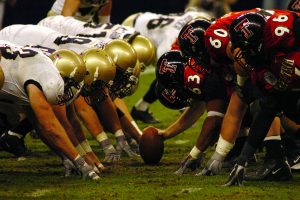While many portray college as a social experience today, this was not always the case. Prior to the 1900s, universities were seen as places exclusively for studying (“Higher Education in the United States”). Students were able to shape their experience to be what they wanted: “it was in the elaborate extracurricular experiences of intercollegiate sports, campus newspapers, collegiate drama, literary societies, alumni groups and fraternities that students reveled” (“Higher Education in the United States”). These different activities and organizations made higher education much more appealing to the average American because college became more than just a place of learning; instead it was now somewhere to find friends and activities. It quickly transitioned from an institution that solely focused on education to one that prioritized the social life and happiness of its students. This shift in what the role of colleges should be reinforced the ambiguous nature of the system because it became something that most students now wanted to be a part of.
